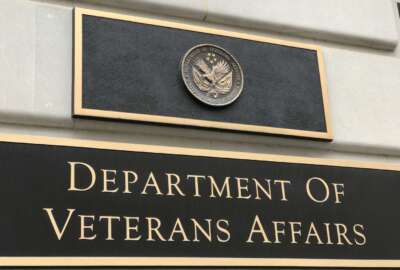Feds face tougher rules to interact with lobbyists
A proposed rule by the Office of Government Ethics expands the mandates for political appointees about contact with lobbyists or lobbying organizations detailed...
By Jason Miller
Executive Editor
Federal News Radio
The Office of Government Ethics wants to clamp down even further on the interaction between federal employees and lobbyists.
OGE would severely limit the exceptions employees have used to attend events or accept gifts worth less than $50 a year from registered lobbyists or lobbying organizations.
In a proposed rule in today’s Federal Register, OGE is expanding the executive order President Obama signed in Jan. 21, 2009 requiring all political appointees to pledge not to accept gifts from lobbyists.
“With the implementation of the current pledge restriction for political appointees, OGE believes that the most important salutary effect has been the elimination of sometimes questionable ‘widely-attended gatherings,’ ‘social invitations,’ and other gifts that might have been permissible under applicable gift exceptions…had the gifts not been extended by registered lobbyists or lobbying organizations,” OGE wrote. “While all of the exceptions…have their appropriate uses, OGE has indeed become concerned that some of the exceptions may have been used on occasion to permit gifts, such as attendance at certain events, where the nexus to the purpose of the exception is attenuated at best.”
The executive order was one of several steps the Obama administration has taken in trying to strengthen the rules around political appointee interaction with lobbyists and their organizations.
OGE proposes to change regulations that would prohibit employees from using the “de minimis” exception, where any gift of less than $20 at one time or $50 a year from the same person is permitted. It also would prohibit employees from going to a “widely attended gathering” (WAG) or accepting social invitations.
“OGE has determined that it is appropriate to follow the House and the Senate, as well as the President’s Ethics Pledge, in sending a consistent message that there is no de minimis for lobbyist gifts,” OGE wrote. “The WAG exception raises particular concerns when free attendance is provided by a lobbyist. That is for the simple reason that the ‘gift’ involved is something that the employee will enjoy in the very company of the lobbyist. If one views the problem of lobbyist gifts as the mere potential for some quid pro quo, then probably an invitation to a gala ball will not directly influence an official to take action benefiting the giver. But it is increasingly recognized that the more realistic problem is not the brazen quid pro quo, but rather the cultivation of familiarity and access that a lobbyist may use in the future to obtain a more sympathetic hearing for clients.”
The proposed rule, however, would exempt certain widely attended gatherings, including those that would provide a legitimate educational or professional development benefit that furthers the interests of an agency. OGE proposes “to exclude nonprofit professional associations, scientific organizations and learned societies, at least with respect to the educational and professional development activities of those entities.”
Additionally, the suggested changes would not affect the ability of employees to speak at events or have staff accompany them.
OGE also said other exceptions to the ban are permitted, including gifts based on a personal relationship, benefits resulting from a spouse’s business or employment and others.
OGE is accepting comments through Nov. 14.
RELATED STORIES:
New executive order further restricts lobbyists
Ethics rules scaring away potential workers
(Copyright 2011 by FederalNewsRadio. All Rights Reserved.)
Copyright © 2024 Federal News Network. All rights reserved. This website is not intended for users located within the European Economic Area.





